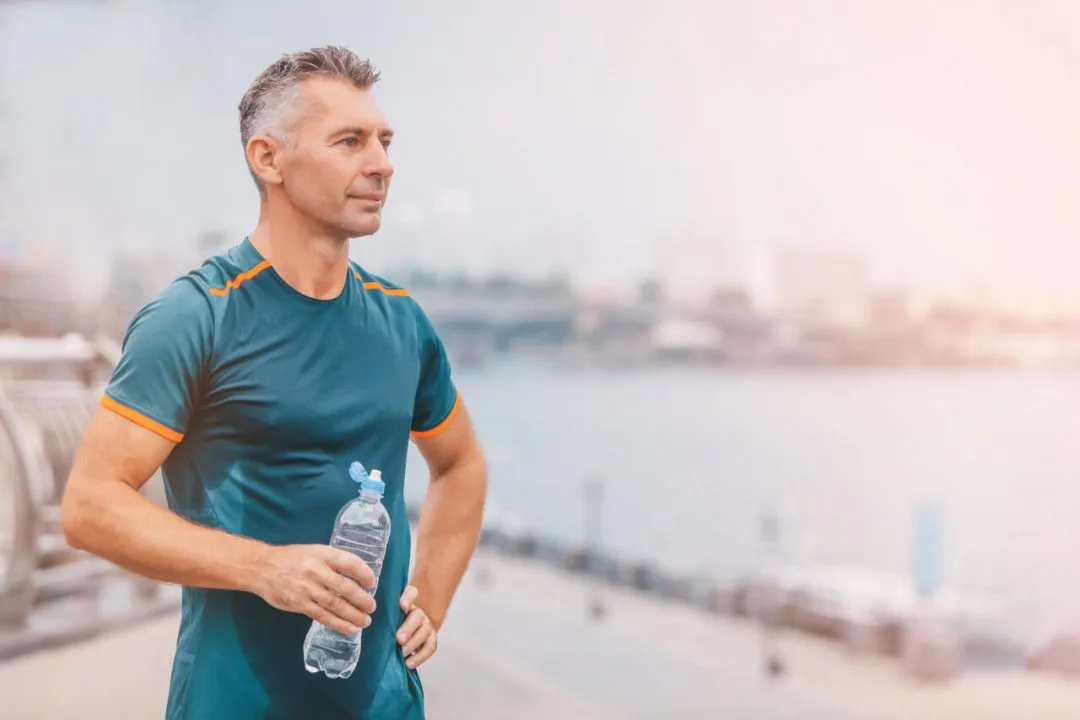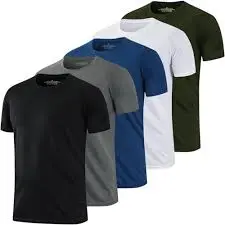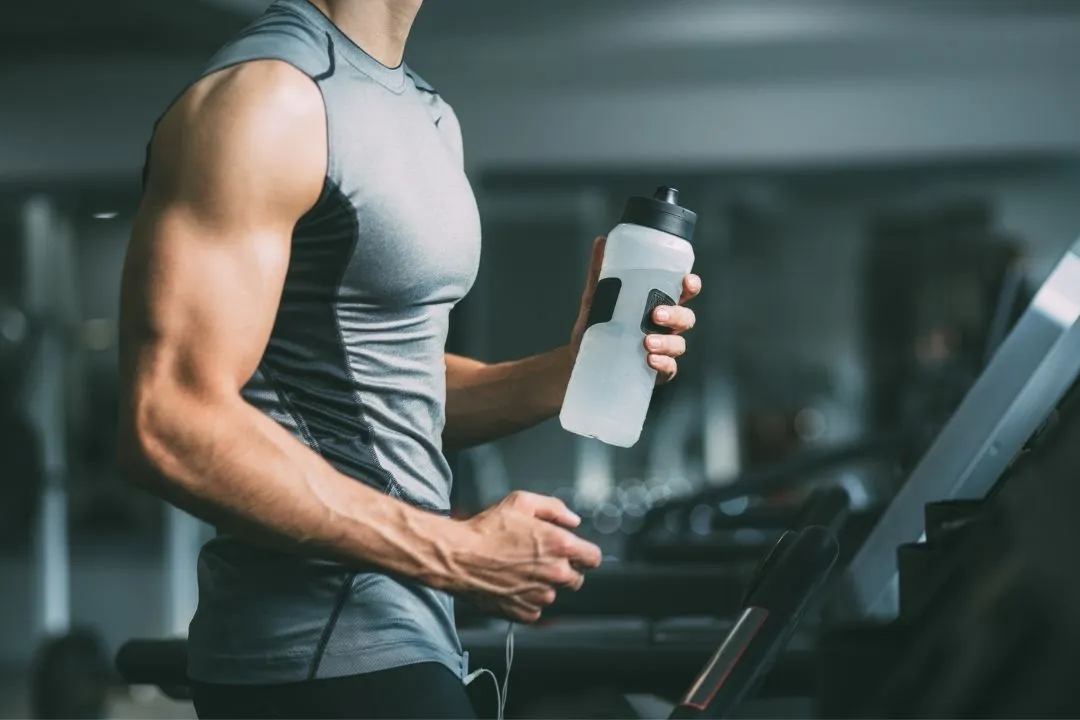Let’s be real—finding the right sports shirt isn’t just about looking good. It’s about performance, comfort, and durability. Whether you’re hitting the gym, running a marathon, or playing a weekend pickup game, your shirt makes all the difference. And if you’ve ever found yourself mid-workout feeling uncomfortable because your shirt is heavy, itchy, or soaked with sweat, you know exactly what I mean.
A solid sports shirt can change how you perform and feel. But with so many options out there, how do you know which one is best for you? Don’t worry—I’ve got you covered. Let’s break it down.

Why the Right Sports Shirt Matters
It’s easy to grab any old t-shirt for a workout. But here’s the thing—a regular shirt isn’t going to cut it when you’re pushing your body. Sports shirts are specifically designed for movement and sweat. They wick moisture, keep you cool, and can even prevent chafing.
Think about it like this: if you’re serious about your workout, your shirt should be serious too.
So, What Makes a Good Sports Shirt?
The best sports shirts combine several key factors:
- Breathability: Nobody wants to feel like they’re wrapped in plastic. A good sports shirt lets your skin breathe.
- Moisture-wicking: This is essential. You’re going to sweat. A lot. Your shirt should pull that moisture away from your skin, so you stay dry.
- Durability: You’re going to be moving, stretching, and probably washing this shirt often. It needs to last.
- Comfort: If it’s scratchy or tight in the wrong places, you’re not going to want to wear it.
- Style: Yeah, I know it’s not all about looks, but if you feel good in what you’re wearing, it’ll show in how you perform.
Types of Sports Shirts

Not all sports shirts are created equal. Depending on what you’re doing, there are a few different types you’ll want to consider.
1. Compression Shirts
If you’re into running, weightlifting, or any high-intensity sport, compression shirts are your best friend. These shirts hug your body tight, which helps with circulation and can reduce muscle fatigue. They’re designed to feel like a second skin.
But here’s the thing—compression isn’t for everyone. Some people love the snug fit; others find it too restrictive. Try it out and see how it feels for you.
2. Loose-Fitting Shirts
Not everyone is down with the tight look. Loose-fitting sports shirts offer more airflow and are great for sports like basketball, yoga, or casual gym sessions. They’re comfortable and don’t cling, making them ideal for activities where you need flexibility.
3. Tanks vs. Tees
Tanks are ideal for workouts where you want max breathability—think weightlifting or anything outdoors. T-shirts provide a bit more coverage and can be more versatile across different activities.
Choosing the Right Fabric
Here’s where most people mess up. The fabric you choose for your sports shirt can make or break your experience. Let’s talk options:
1. Polyester
This is the most common fabric for sports shirts. It’s lightweight, breathable, and quick-drying. You can throw this on for a run, a gym session, or any sport. Plus, it holds up well wash after wash. The downside? It can get a little funky if not washed properly.
2. Cotton
Cotton shirts are soft and breathable, but here’s the catch: they absorb sweat like a sponge. If you’re doing low-impact activities like yoga or light walking, cotton is great. But for anything more intense, skip it. You’ll feel weighed down and wet in no time.
3. Blends
Many sports shirts are made from a combination of fabrics, like polyester-cotton blends or polyester-spandex. Blends give you the best of both worlds—breathability, moisture-wicking, and comfort. Look for these if you want something that covers all the bases.
Sports Shirt Care 101
You’ve invested in a good sports shirt, now let’s talk about taking care of it. A little attention goes a long way in keeping your shirts fresh and long-lasting.
- Wash cold: Hot water can break down the fibers in your shirt. Stick to cold water.
- Avoid fabric softeners: These can clog the fibers and reduce breathability.
- Hang dry: Avoid the dryer when you can. Heat can damage the performance fabric over time.
When to Replace Your Sports Shirt
This might be a little painful, but sometimes it’s time to retire that favorite shirt of yours. If you notice any of the following, it’s probably time to upgrade:
- Lingering smells: If your shirt still stinks after a wash, it’s probably time to say goodbye.
- Worn-out fabric: If it’s lost its stretch or there are visible tears, you’re due for a new one.
- Loss of moisture-wicking ability: If your shirt isn’t keeping you dry like it used to, it’s not doing its job anymore.
Best Brands for Sports Shirts
There are countless brands out there, and picking the right one can feel overwhelming. Here are a few of the top brands known for their quality sports shirts:
- Nike: No surprises here. Nike consistently produces high-quality sports gear, and their sports shirts are no exception.
- Under Armour: Known for their compression shirts and moisture-wicking fabrics, Under Armour is a go-to for many athletes.
- Adidas: Stylish and functional, Adidas sports shirts offer great breathability and comfort.
- Lululemon: If you’re willing to spend a little more, Lululemon offers some of the most comfortable and durable shirts on the market, especially for yoga and running.
Frequently Asked Questions (FAQs)
- How should a sports shirt fit?
A sports shirt should be snug enough to stay in place during activity but not so tight that it restricts movement. If you’re doing high-intensity sports, compression shirts might be a better choice, while looser fits are ideal for activities like yoga or casual workouts. - What’s the best fabric for sports shirts?
Polyester is the go-to fabric for most sports shirts because it’s breathable, moisture-wicking, and durable. Blends like polyester-spandex are also excellent choices. - How do I get the sweat smell out of my sports shirt?
If your shirt still smells after washing, try soaking it in a mixture of water and white vinegar before washing. Avoid fabric softeners and always wash in cold water. - Can I wear a cotton shirt for sports?
You can, but it’s not ideal for high-sweat activities. Cotton absorbs moisture and will make you feel wet and heavy. Stick to cotton for light activities like walking or yoga. - How often should I replace my sports shirts?
It depends on how often you wear them. If the fabric starts to wear out, the moisture-wicking ability decreases, or if they hold onto smells, it’s time to replace them.
Conclusion
Choosing the right sports shirt isn’t just about style—it’s about making sure you’re comfortable, dry, and free to move. From moisture-wicking fabrics to the perfect fit, getting it right can elevate your workout.
So, when you’re gearing up for your next activity, make sure your sports shirt can keep up with you.
The right sports shirt doesn’t just make a difference—it makes the difference.
READ MORE: Sports Shirts

